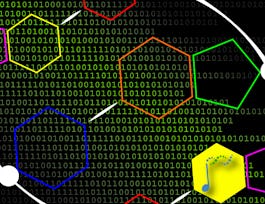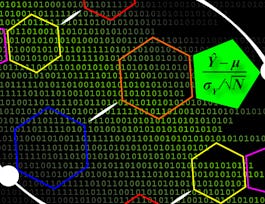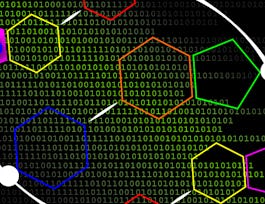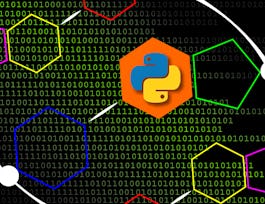We will learn computational methods -- algorithms and data structures -- for analyzing DNA sequencing data. We will learn a little about DNA, genomics, and how DNA sequencing is used. We will use Python to implement key algorithms and data structures and to analyze real genomes and DNA sequencing datasets.


Algorithms for DNA Sequencing
This course is part of Genomic Data Science Specialization
Taught in English
Some content may not be translated


Instructors: Ben Langmead, PhD
41,167 already enrolled
Included with 
Course
(881 reviews)
96%
Details to know

Add to your LinkedIn profile
8 quizzes
Course
(881 reviews)
96%
See how employees at top companies are mastering in-demand skills

Build your subject-matter expertise
- Learn new concepts from industry experts
- Gain a foundational understanding of a subject or tool
- Develop job-relevant skills with hands-on projects
- Earn a shareable career certificate


Earn a career certificate
Add this credential to your LinkedIn profile, resume, or CV
Share it on social media and in your performance review

There are 4 modules in this course
This module we begin our exploration of algorithms for analyzing DNA sequencing data. We'll discuss DNA sequencing technology, its past and present, and how it works.
What's included
19 videos7 readings2 quizzes
In this module, we learn useful and flexible new algorithms for solving the exact and approximate matching problems. We'll start by learning Boyer-Moore, a fast and very widely used algorithm for exact matching
What's included
15 videos1 reading2 quizzes
This week we finish our discussion of read alignment by learning about algorithms that solve both the edit distance problem and related biosequence analysis problems, like global and local alignment.
What's included
13 videos1 reading2 quizzes
In the last module we began our discussion of the assembly problem and we saw a couple basic principles behind it. In this module, we'll learn a few ways to solve the alignment problem.
What's included
13 videos1 reading2 quizzes
Instructors

Offered by
Recommended if you're interested in Data Analysis

Johns Hopkins University

Johns Hopkins University

Johns Hopkins University

Johns Hopkins University
Why people choose Coursera for their career




Learner reviews
Showing 3 of 881
881 reviews
- 5 stars
80.27%
- 4 stars
14.73%
- 3 stars
3.17%
- 2 stars
0.56%
- 1 star
1.24%
New to Data Analysis? Start here.

Open new doors with Coursera Plus
Unlimited access to 7,000+ world-class courses, hands-on projects, and job-ready certificate programs - all included in your subscription
Advance your career with an online degree
Earn a degree from world-class universities - 100% online
Join over 3,400 global companies that choose Coursera for Business
Upskill your employees to excel in the digital economy
Frequently asked questions
Access to lectures and assignments depends on your type of enrollment. If you take a course in audit mode, you will be able to see most course materials for free. To access graded assignments and to earn a Certificate, you will need to purchase the Certificate experience, during or after your audit. If you don't see the audit option:
The course may not offer an audit option. You can try a Free Trial instead, or apply for Financial Aid.
The course may offer 'Full Course, No Certificate' instead. This option lets you see all course materials, submit required assessments, and get a final grade. This also means that you will not be able to purchase a Certificate experience.
When you enroll in the course, you get access to all of the courses in the Specialization, and you earn a certificate when you complete the work. Your electronic Certificate will be added to your Accomplishments page - from there, you can print your Certificate or add it to your LinkedIn profile. If you only want to read and view the course content, you can audit the course for free.
If you subscribed, you get a 7-day free trial during which you can cancel at no penalty. After that, we don’t give refunds, but you can cancel your subscription at any time. See our full refund policy.

